Transformative Experiences - NIKA Project in Indonesia and Malaysia
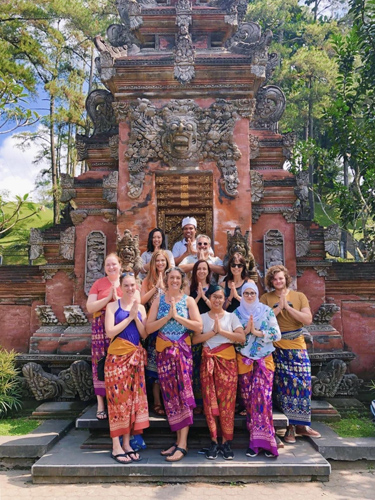
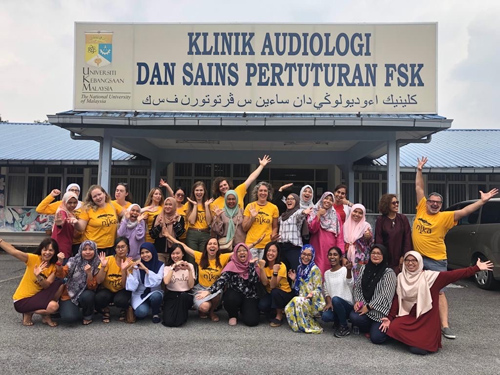
Six SF State students traveled with a team of AAC mentors in partnership with the NIKA Project to work in schools with children, families, teachers and university graduate students. SF State students had the opportunity to create and to implement AAC systems through teaching families and teachers, thus contributing to the power and sustainability of communication tools for children with disabilities in each location. More about NIKA is available at NIKA Our Process.
In Bali, Indonesia, the students and NIKA mentors conducted all-day training at the schools, Sjaki-Tari-Us School and Yayasan Widya Guna, for their teachers and therapists. They introduced mobile technology tools to them and worked in creating digital books and social stories, creating vocabulary and literacy activities, and customizing communication systems for teaching and student response. Each SFSU student selected a target student and created individualized AAC supports and intervention.
In Kuala Lumpur, Malaysia, the students partnered with the National University of Malaysia’s (NUM) Speech and Language Pathology department. Together SFSU students, NIKA mentors, and NUM students addressed the needs of Kiwanis Down Syndrome National Center, Kuala Lumpur School for Autism, Spastic Children’s Association Of Selangor & Federal Territory, and Public School KD11. Each SFSU student performed assessment, provided teacher training in AAC and assistive technology, and created AAC supports. At the end of the week, SFSU students and NUM students presented the outcome of their projects to NUM faculty, students, and NIKA mentors.
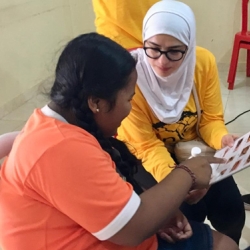
“I really love what I was doing and how effective and efficient change can happen in a short amount of time! The more people I partnered with, the more aware I was about the differences. I would also like to mention learning and using the language showed vulnerability and willingness to learn more about the culture. It opened up conversations about the similarity and differences across our cultures. It provided opportunities for jokes and laughter. I did not expect to bond with so many, many lovely people! And everybody has been so lovely."
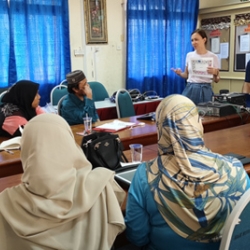
"I learned a sincere question to understand the cultural differences is an important way to accept the differences and build a relationship over a conversation with one another. Forming a sincere discussion about perspective on the implementation of AAC practice, will open up ideas, feelings, reservations and benefits. I believe the ability to talk transparently without judgement will greatly benefit the relationship between all parties."
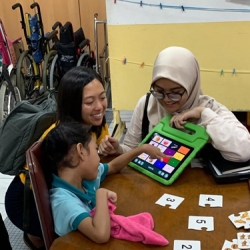
"I learned the importance of slowing down when speaking, how to break down complex concepts into simple language and not assuming familiarity. For example, I found that I assumed that all the teachers would be familiar with basic iPad functions (e.g., how to take a photo, that the plus sign means "more" and the trash icon means "delete"). I found that I had to slow down and check for understanding before moving on in my training. I found that having the teachers use the technology and create their own activity was the most effective way to assess their understanding."
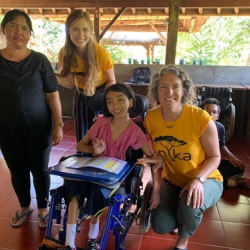
"This experience shaped my personal and professional development by allowing me to see a different culture and its way of living. By interacting with the family members of the school and the professional staff, I learned that children with special needs in different countries will also benefit from the teaching strategies that are also implemented in the United States. Although the curriculum may be different, the visual supports and the teaching strategies are effective. Most importantly, it made me feel much more confident in expanding my cultural awareness as a speech-language pathologist."